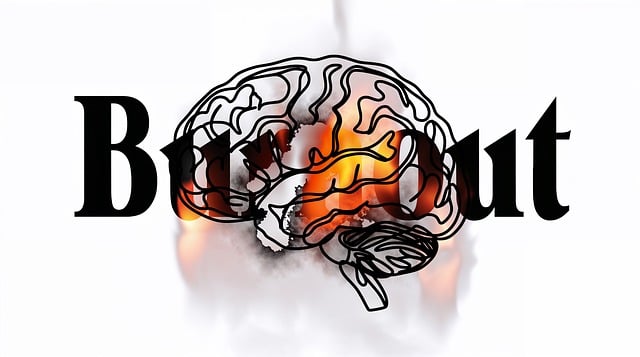Substance abuse is a complex issue demanding comprehensive strategies addressing mental health, trauma, and stress management. Effective interventions include therapy for adults, family counseling, trauma support, and wellness coaching. Individual and family therapy mitigate risks, improve communication, and promote holistic recovery. Cognitive-behavioral therapy (CBT) targets negative thought patterns, while community support offers safe spaces and resources. Key strategies focus on addressing underlying causes, improving interpersonal dynamics, and providing tailored care for lasting recovery.
Substance abuse poses significant risks, impacting individuals’ physical and mental health, relationships, and overall well-being. This article explores comprehensive risk reduction strategies to combat this pervasive issue. We delve into evidence-based approaches such as individual therapy, where professionals provide personalized support. Family counseling emerges as a powerful tool, fostering collective healing and understanding among loved ones. Additionally, behavioral modifications, community support groups, and alternative resources are highlighted for long-term recovery and relapse prevention, offering hope and guidance for those seeking a healthier, substance-free life.
- Understanding Substance Abuse and Its Risks
- Individual Therapy as a Risk Mitigation Tool
- Family Counseling: A Collective Approach to Recovery
- Behavioral Modifications for Long-Term Success
- Community Support and Alternative Resources
Understanding Substance Abuse and Its Risks

Substance abuse is a complex issue that impacts individuals across various demographics. Understanding its root causes and risks is paramount in developing effective strategies to mitigate harm. It often stems from underlying factors such as mental health issues, trauma, or stress management difficulties. Many adults struggle with substance misuse, which can have severe consequences on their physical and mental well-being, relationships, and overall quality of life.
Family counseling plays a crucial role in addressing these challenges. By providing a safe space for open communication, therapy sessions enable individuals to process their struggles, build coping mechanisms, and strengthen family bonds. Additionally, trauma support services are vital for those who have experienced distressing events, as unresolved trauma can contribute to substance abuse. Mental wellness coaching programs offer another layer of support, focusing on holistic development and stress management techniques to empower individuals in their recovery journey.
Individual Therapy as a Risk Mitigation Tool

Individual therapy serves as a powerful tool in mitigating risks associated with substance abuse. Through one-on-one sessions with a qualified therapist, individuals can explore and address underlying emotional issues, often stemming from trauma or stress, that contribute to their reliance on substances. This therapeutic approach facilitates personal growth by teaching coping skills development, crisis intervention guidance, and stress reduction methods tailored to each client’s unique needs.
Family counseling further enhances this process by providing a supportive environment for individuals to involve their loved ones in the recovery journey. By incorporating family dynamics into therapy, it becomes easier to identify problematic patterns and improve communication, ultimately strengthening support systems and reducing relapse risks. This holistic approach leverages both individual and familial aspects to foster positive change and lasting recovery.
Family Counseling: A Collective Approach to Recovery

Family Counseling plays a pivotal role in substance abuse recovery by adopting a collective approach that addresses the interconnectedness of family dynamics and individual behaviors. This collaborative therapy brings together all members of the household to open lines of communication, identify underlying issues, and develop healthier coping mechanisms. By fostering an environment of understanding and support, family counseling empowers each individual to navigate their path to recovery while strengthening family bonds.
Incorporating cultural competency training for healthcare providers is essential within this framework, ensuring that families from diverse backgrounds receive tailored care. Emotional well-being promotion techniques and mental wellness coaching programs developed through such training enable counselors to address specific cultural needs, making therapy more effective and inclusive. This holistic approach not only enhances the chances of successful recovery but also cultivates lasting positive changes within the family unit.
Behavioral Modifications for Long-Term Success

Behavioral modifications play a pivotal role in achieving long-term success for individuals struggling with substance abuse. Therapy for adults, particularly cognitive-behavioral therapy (CBT), equips clients with valuable tools to identify and modify negative thought patterns and behaviors associated with drug use. By fostering self-awareness exercises, CBT helps individuals understand triggers, develop coping mechanisms, and build resilience against cravings. This therapeutic approach empowers them to make healthier choices and maintain sobriety in the long run.
Complementing individual therapy, family counseling is another powerful strategy for risk reduction. It addresses interpersonal dynamics and family patterns that may contribute to substance abuse. Through open communication and improved understanding, family members learn to support one another’s recovery journey. Integrating self-awareness exercises into family counseling sessions can further strengthen bonds, enhance empathy, and create a nurturing environment conducive to sustained abstinence. Moreover, public awareness campaigns development and engaging mental wellness podcast series production can reinforce these strategies by providing continuous education, support, and inspiration for those seeking recovery.
Community Support and Alternative Resources

Community support plays a vital role in mitigating risks associated with substance abuse. Local support groups and recovery programs offer individuals a safe space to connect with peers facing similar challenges, fostering a sense of belonging and accountability. These communities often provide resources for therapy for adults struggling with addiction, addressing underlying issues like depression prevention and stress management. By offering alternative coping mechanisms and emotional regulation techniques through family counseling sessions, these networks empower members to make positive changes in their lives.
Additionally, community resources can direct individuals toward specialized services tailored to their needs. Accessing professional therapy or enrolling in support groups allows for personalized guidance, helping one navigate the complexities of recovery. The integration of social support and alternative resources creates a robust safety net, enhancing the effectiveness of substance abuse risk reduction strategies.
Substance abuse is a complex issue, but with the right strategies, individuals can significantly reduce risks and achieve long-term recovery. By combining individual therapy to address personal triggers, family counseling to foster collective support, behavioral modifications for sustained change, and leveraging community resources, those struggling with substance abuse can find effective paths to healing. These comprehensive approaches empower individuals not only to overcome addiction but also to build resilient, supportive networks crucial for maintaining sobriety in the long term.









